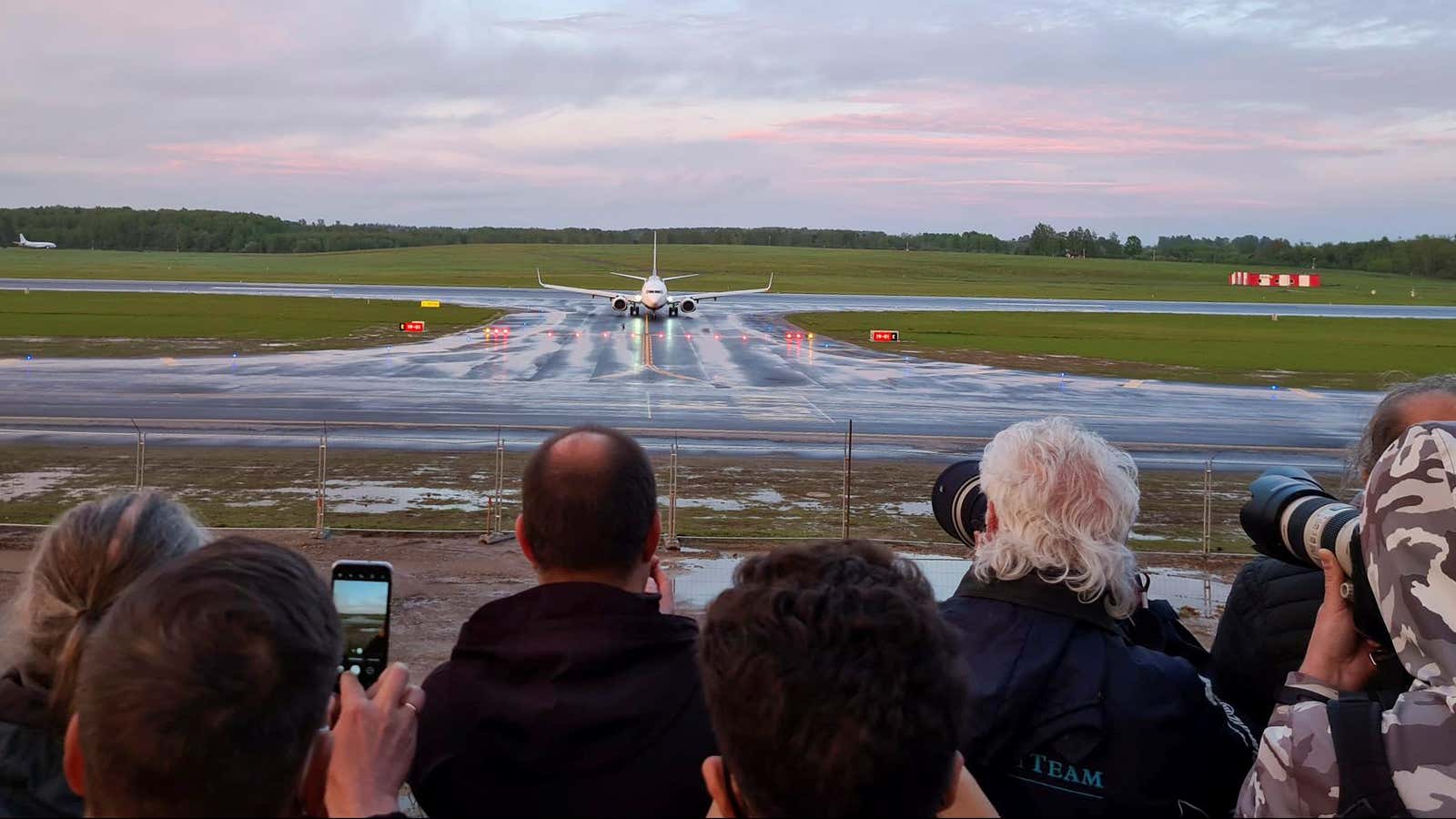When news emerged yesterday (May 23) that Belarus had forcefully diverted a Ryanair flight to its capital so that it could arrest an exiled activist on board, European Union officials flooded Twitter to share information and respond in real time.
A controversy that has since erupted over one official’s tweet shows that political communication is a delicate balancing act in the best of times, but that in a crisis, it’s difficult to get entirely right.
What happened in Belarus?
Belarus is ruled by Aleksandr Lukashenko, an authoritarian leader who enjoys the support of neighboring Moscow. Last year, after Lukashenko was reelected in an election that many countries considered fraudulent, protests erupted against his government. State forces brutally suppressed the protesters and the EU sanctioned 88 Belarusian power-brokers, including Lukashenko.
Some of those protests were organized by activist Roman Protasevich via Telegram channels. He fled to Poland in 2019 to escape retribution from Lukashenko’s government, which considers him a terrorist. Protasevich was flying from Athens to Vilnius on a Ryanair flight when Belarusian authorities forced the aircraft to land in Minsk. He and his partner were taken into custody and the plane sent back on its way, five passengers short. (The CEO of Ryanair, Michael O’Leary, speculated that the other three may have been Belarusian security agents, but this is unconfirmed.)
EU leaders are meeting today to consider further sanctions and a ban on the Belarusian national carrier Belavia. Aside from the EU, the US, UK, and NATO have also condemned the incident. A spokesperson for the Russian government called the Western reaction hypocritical.
How did the EU react?
Yesterday, Twitter was full of statements from the EU’s various spokespeople about the incident in Minsk.
One stood out: A tweet from Adina Vălean, EU commissioner for transport, who around 7pm local time said it was “great news for everyone” that the Ryanair aircraft was once again on its way to Vilnius. As observers quickly pointed out, it wasn’t such great news for Protasevich, who the aircraft left behind in Belarus, and who could now face the death penalty.
Reactions quickly poured in, including from EU lawmakers like Raphael Glucksmann, who called her statement “an absolute disgrace,” and Reinhard Butikofer, who said she should “go home” and “let somebody else do the job.” Jean-Louis Bourlanges, president of the French parliament’s foreign affairs committee, also called on Vălean to resign.
To be clear, the issue at stake here is the kidnapping of a journalist by an authoritarian government, not a single tactless tweet about it by a European commissioner.
But in a crisis, communication is key, points out Audra Diers-Lawson, a senior lecturer at Leeds Beckett University in the UK. “This statement would’ve been appropriate for, say, a mechanical problem that forced an emergency landing where no one [got] hurt,” she argues. “To say ‘great news’ is tone deaf, and it suggests a lack of political and social understanding of the implications of the situation.”
Nearly 24 hours later, Vălean’s tweet is still up, and garnering more criticism on Twitter. Diers-Lawson points out it is taking attention away from “what’s actually important”—in this case, “people’s safety.”
The European Commission did not respond to a request for comment.
